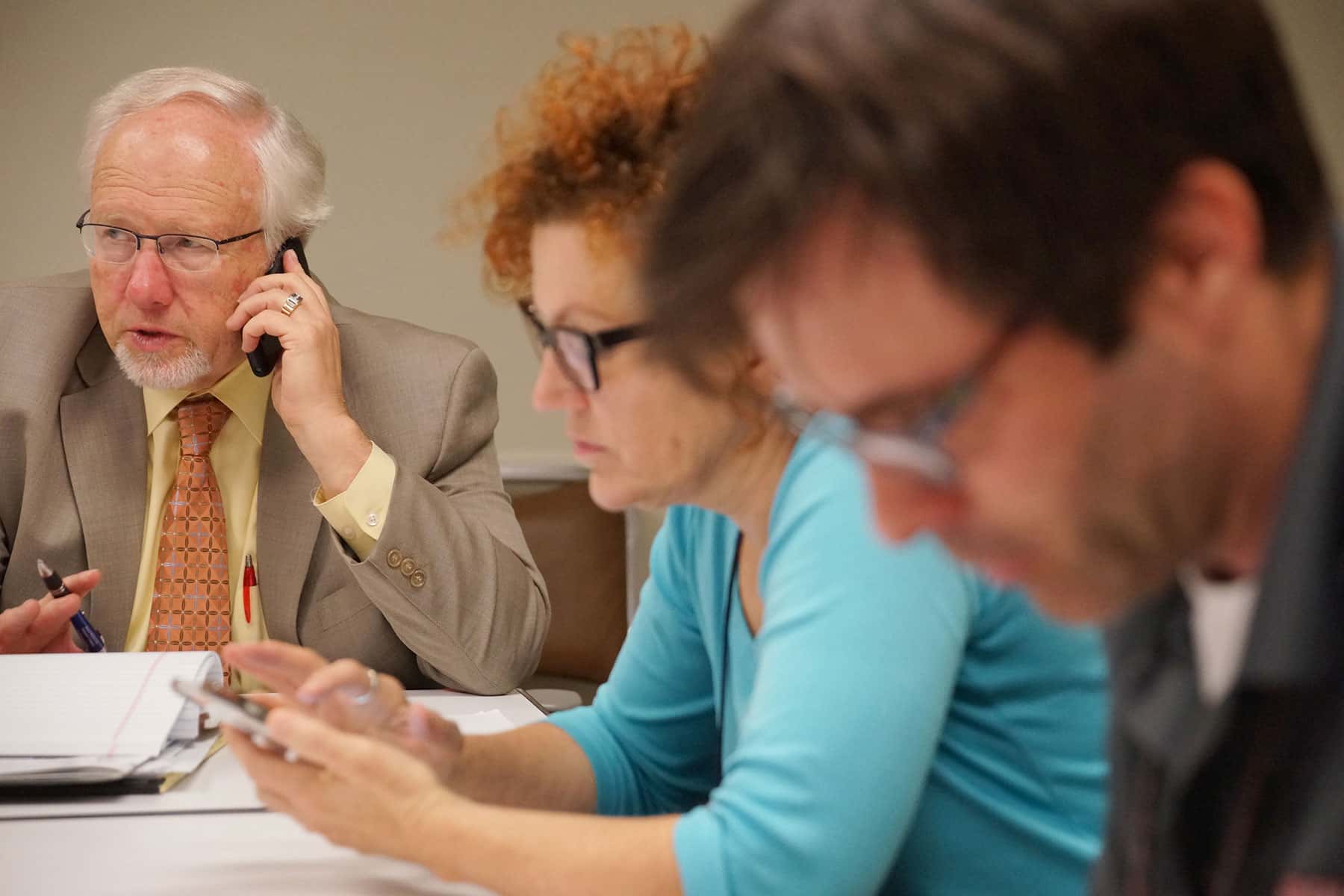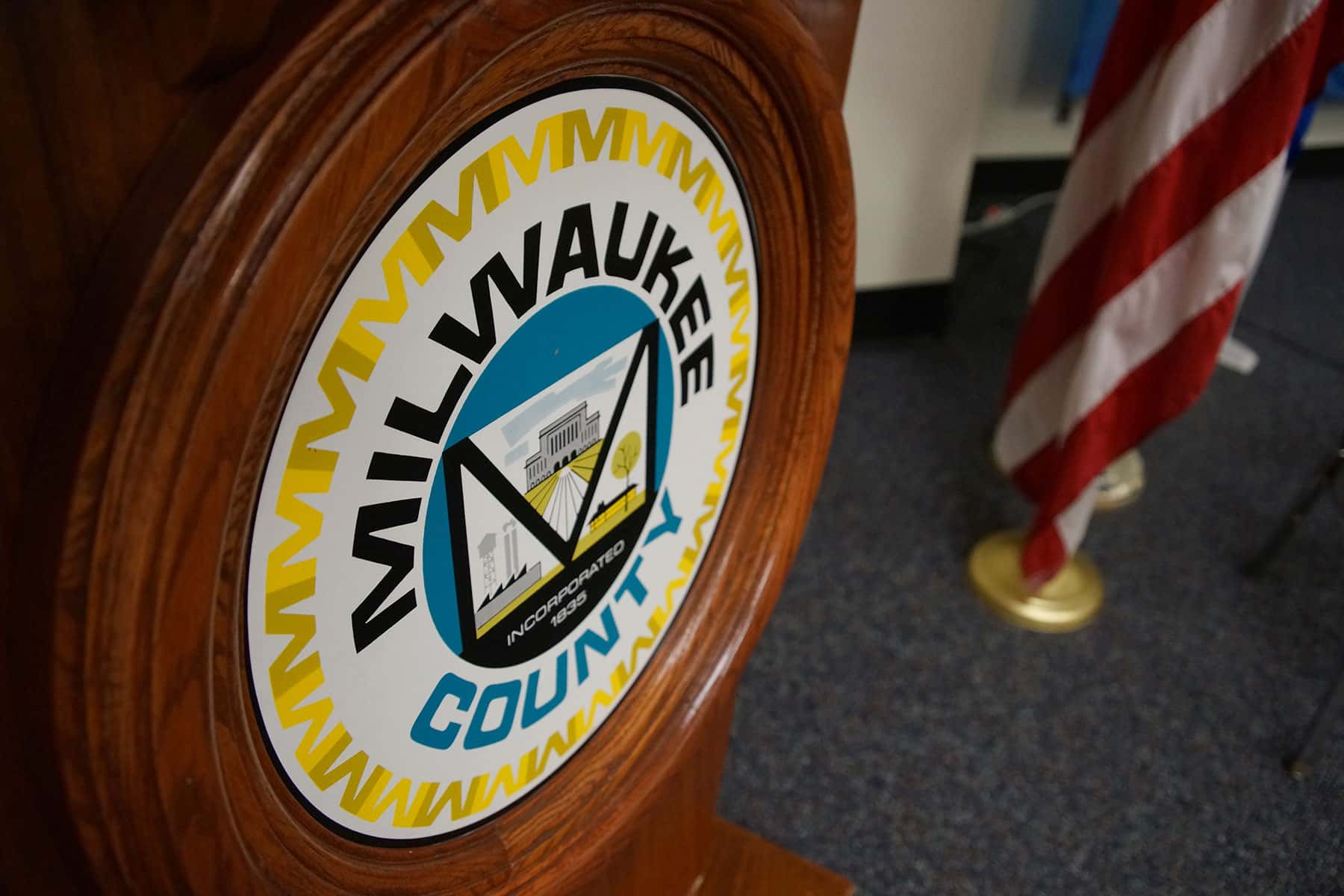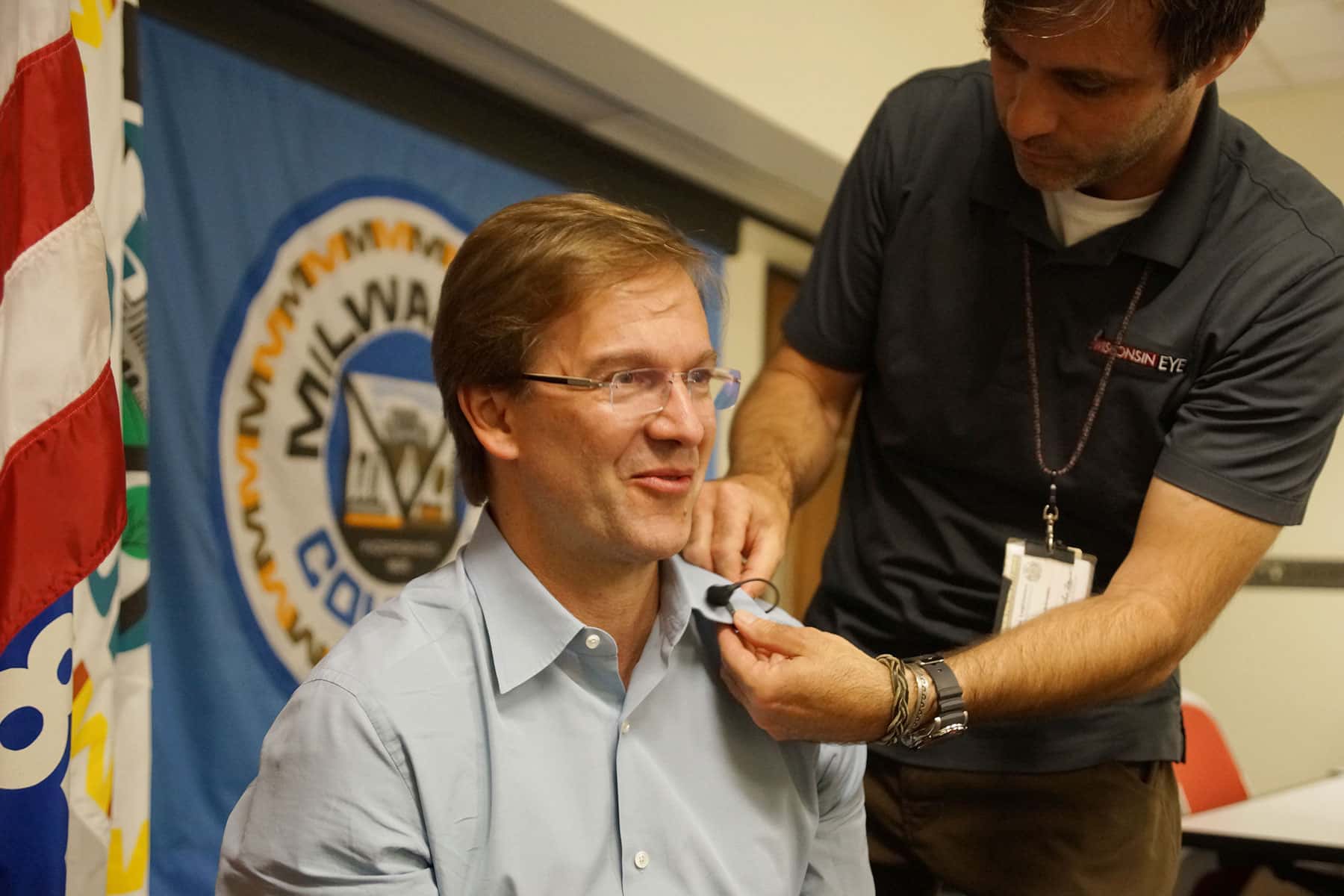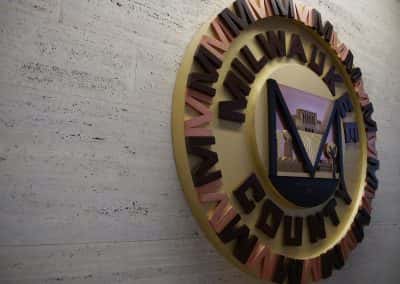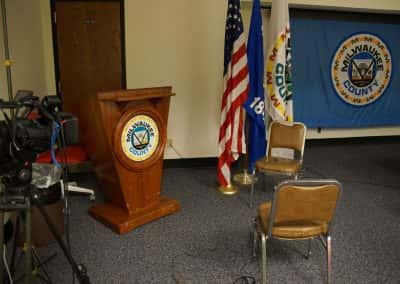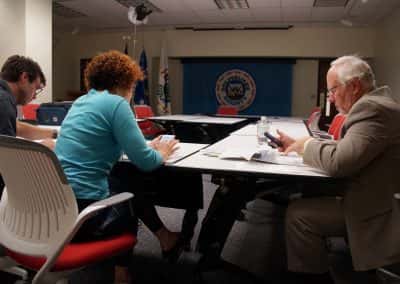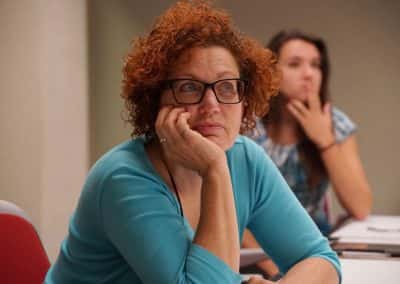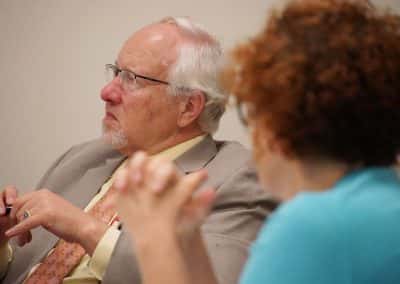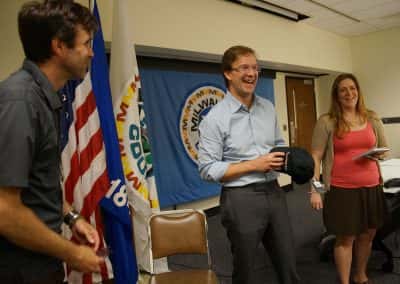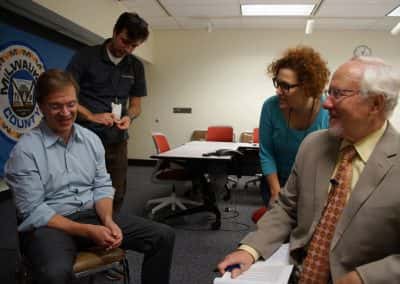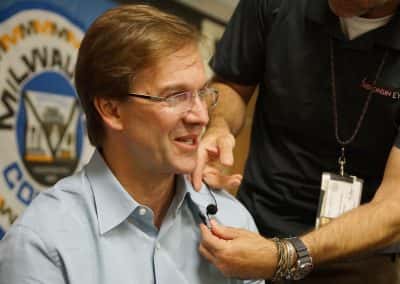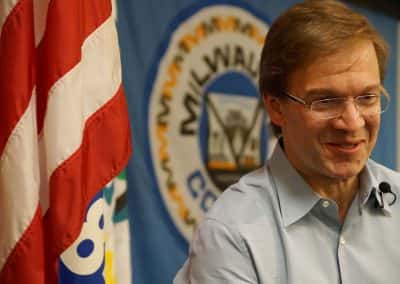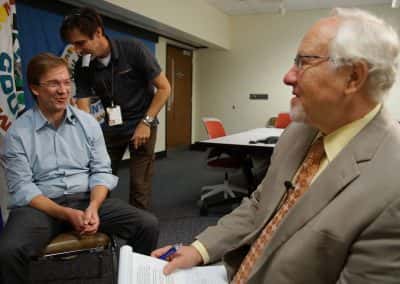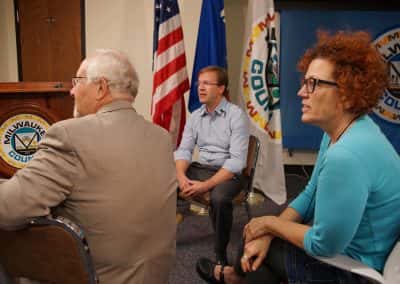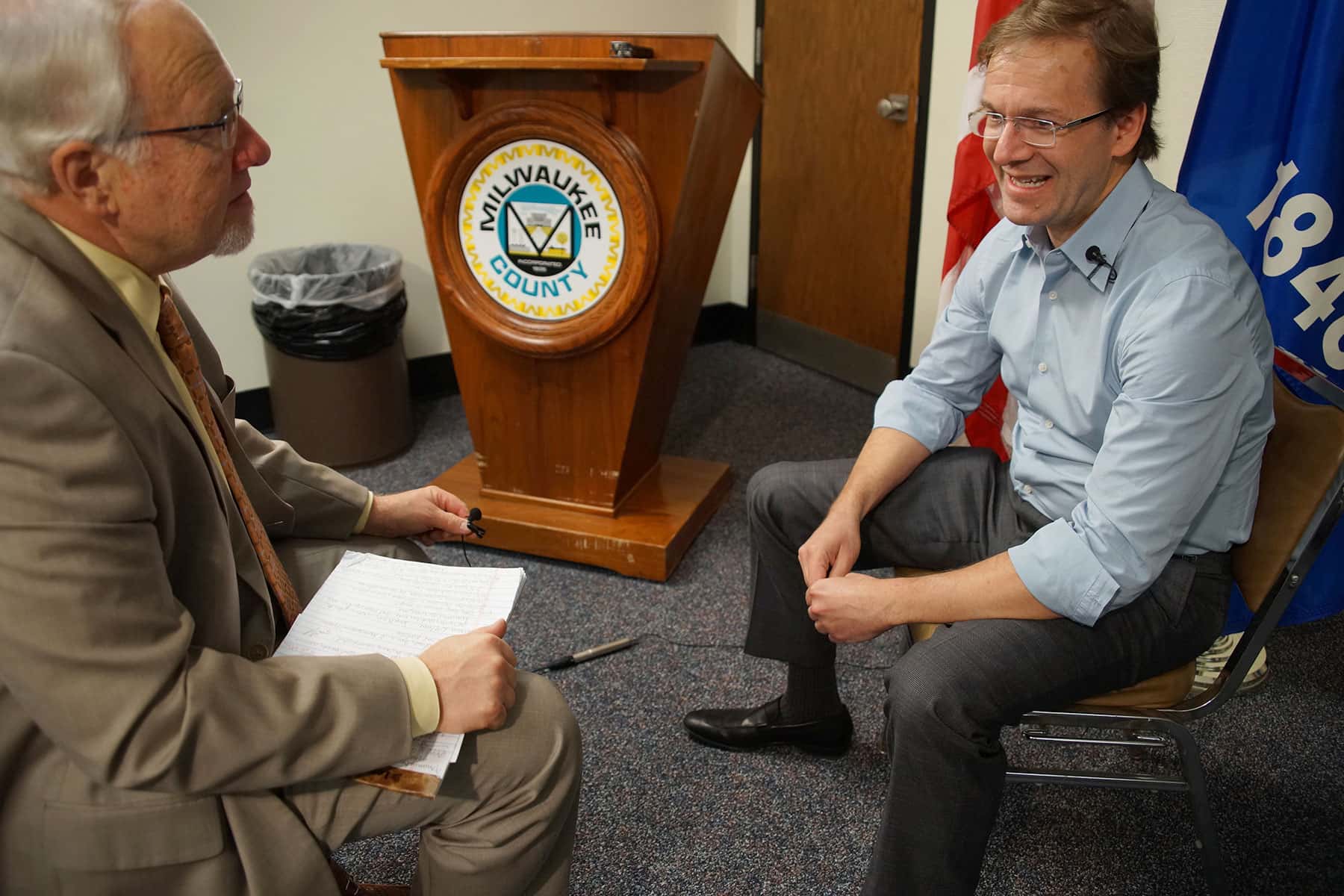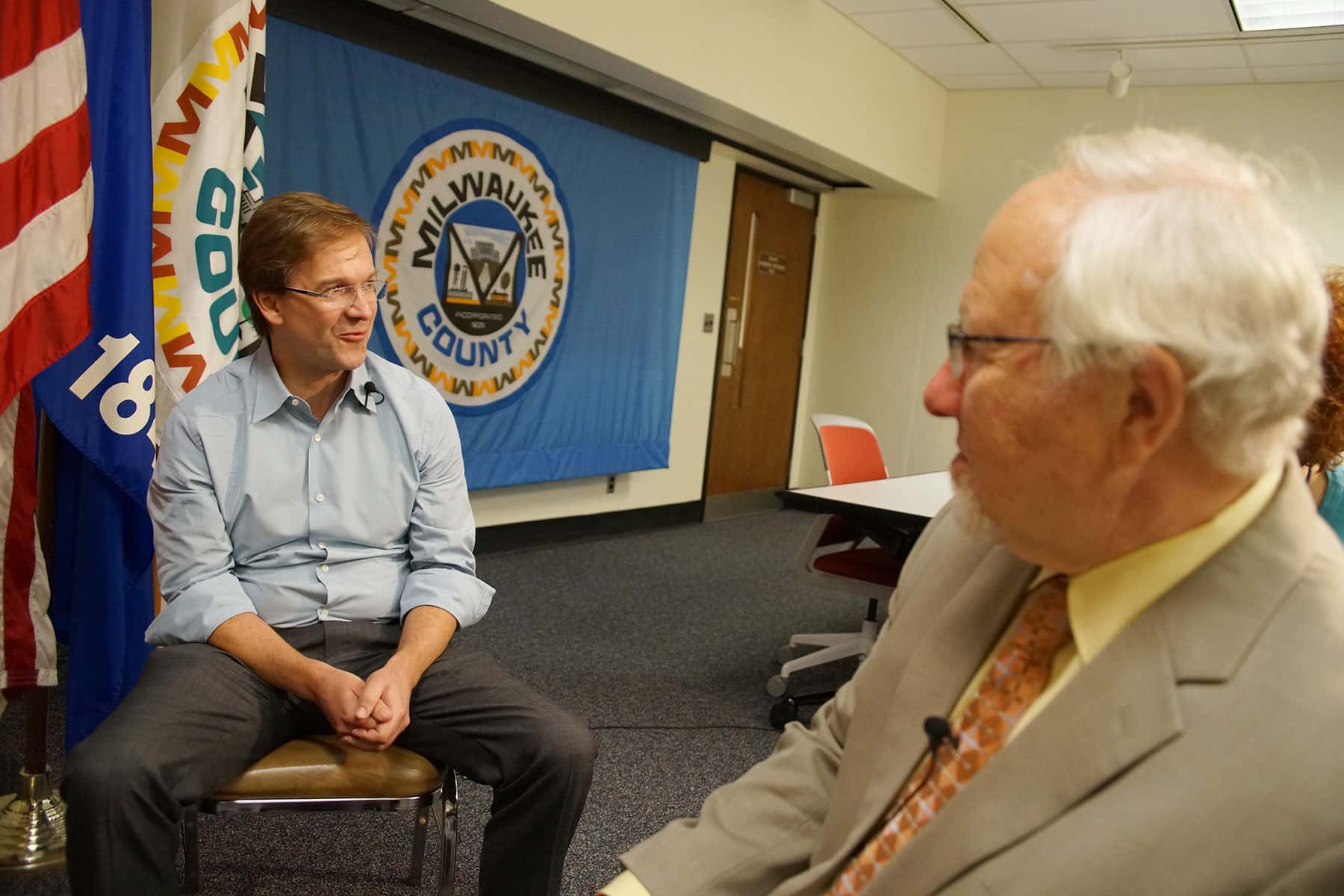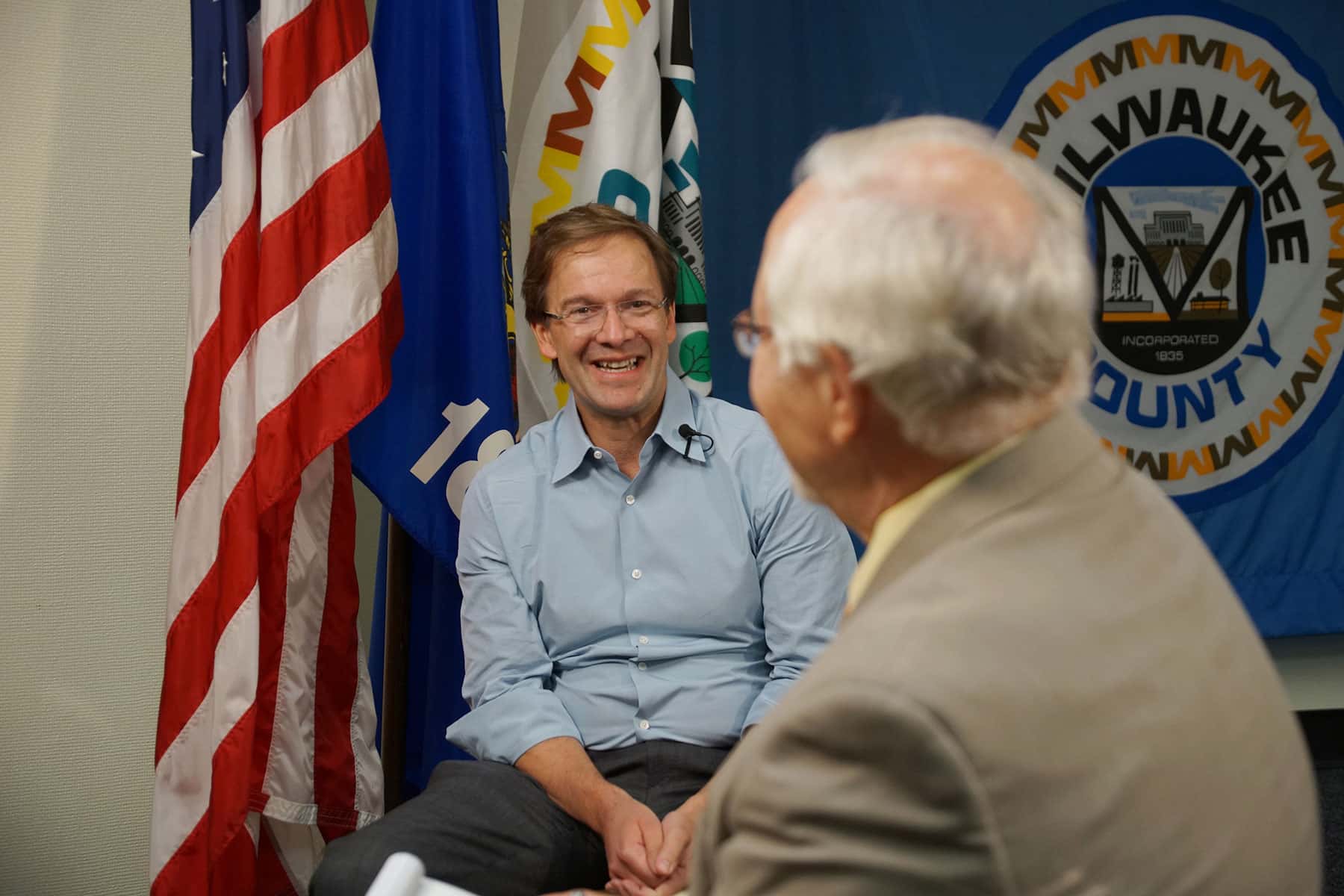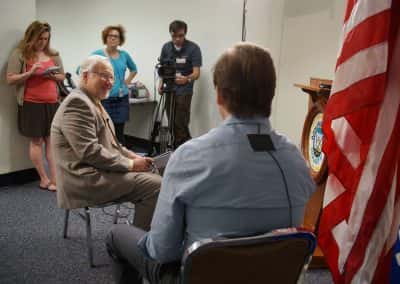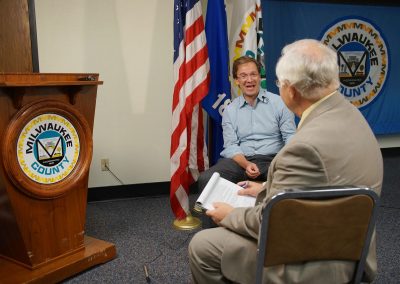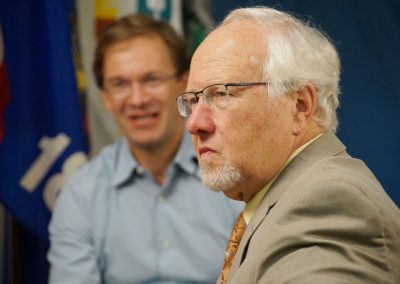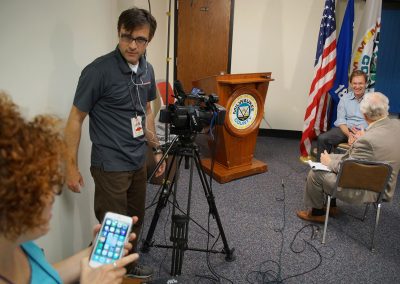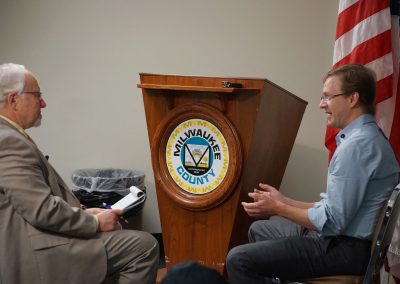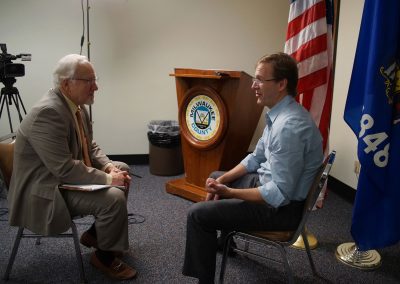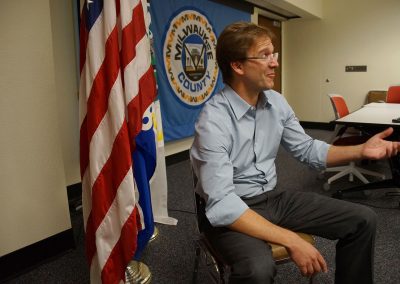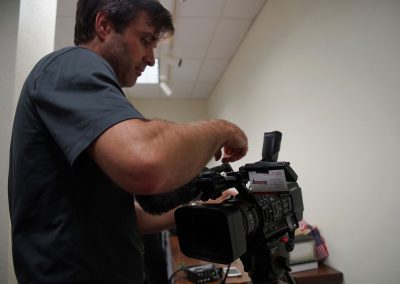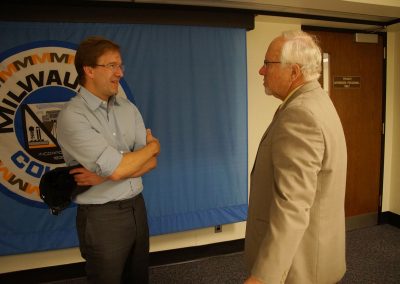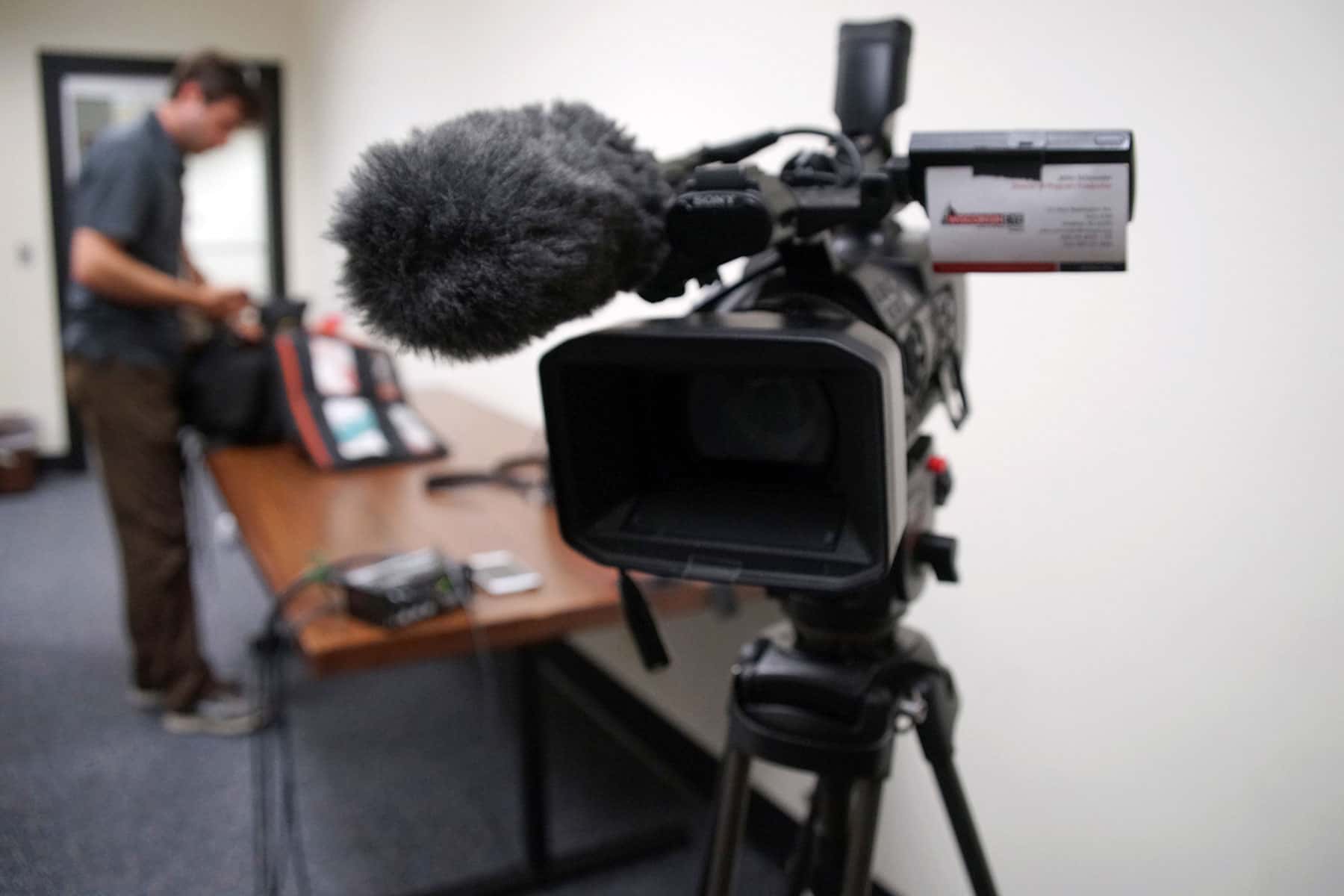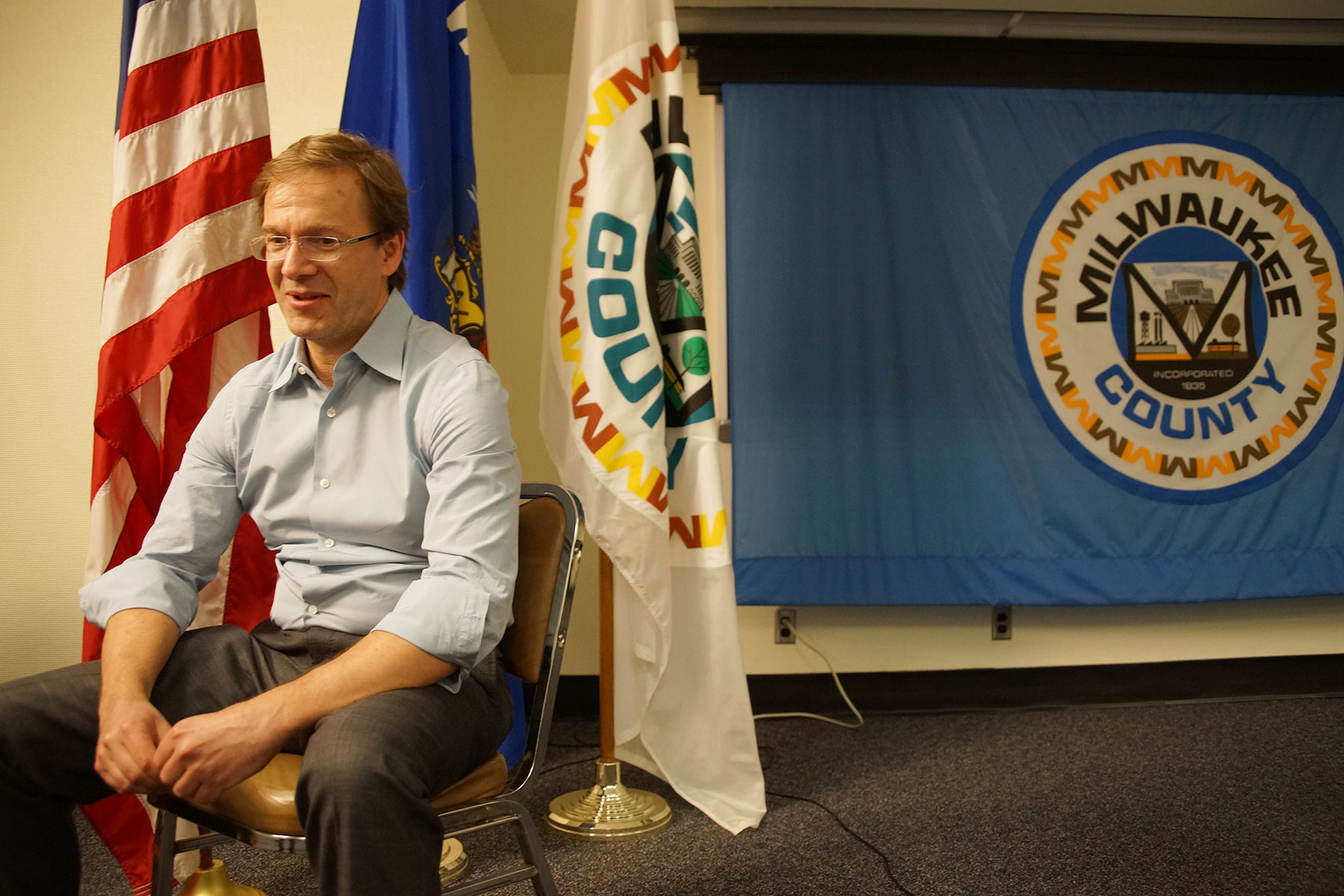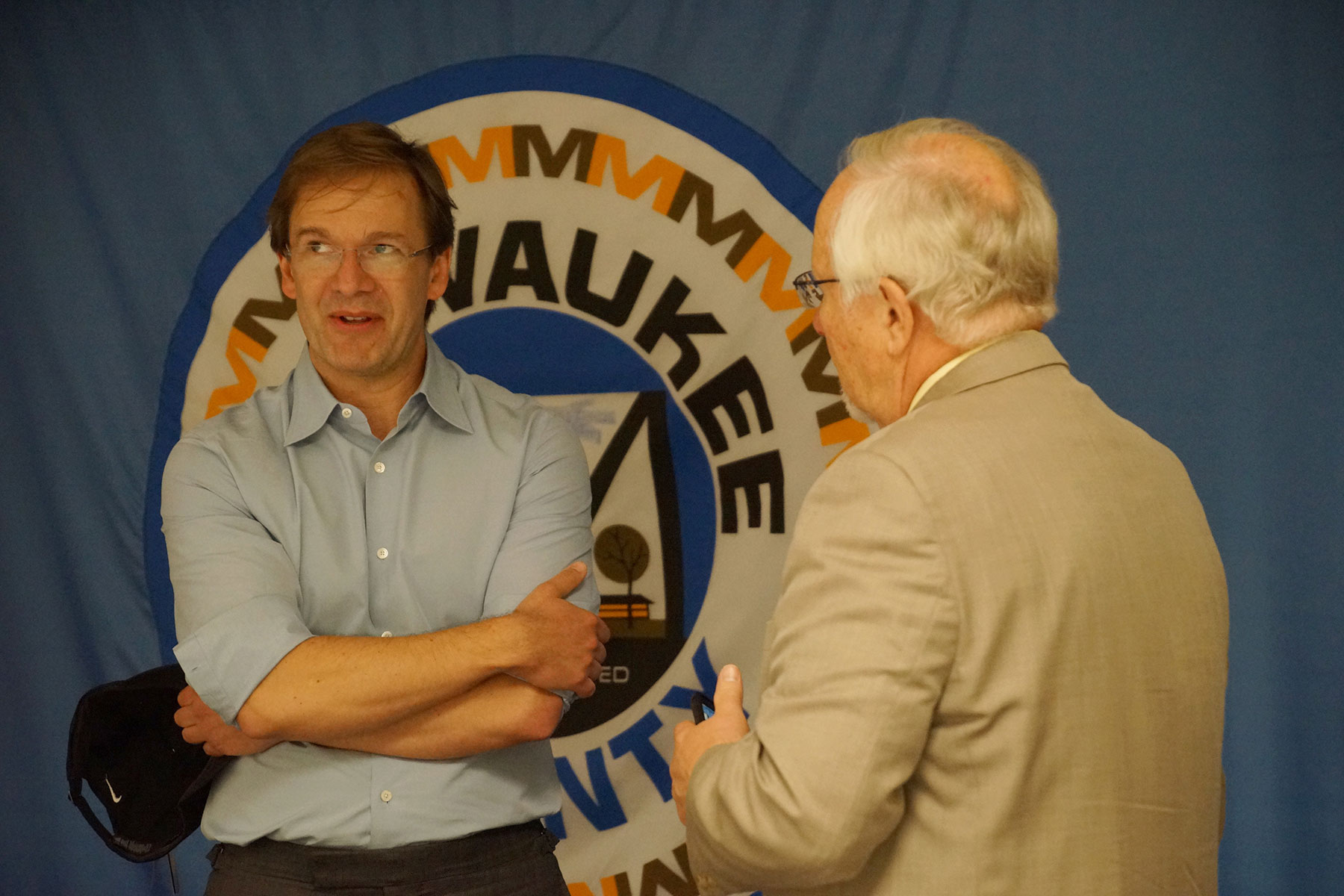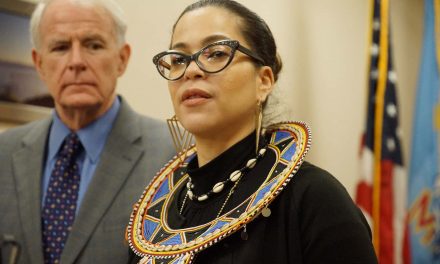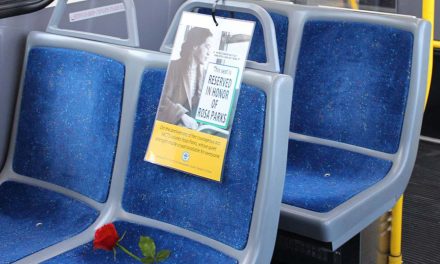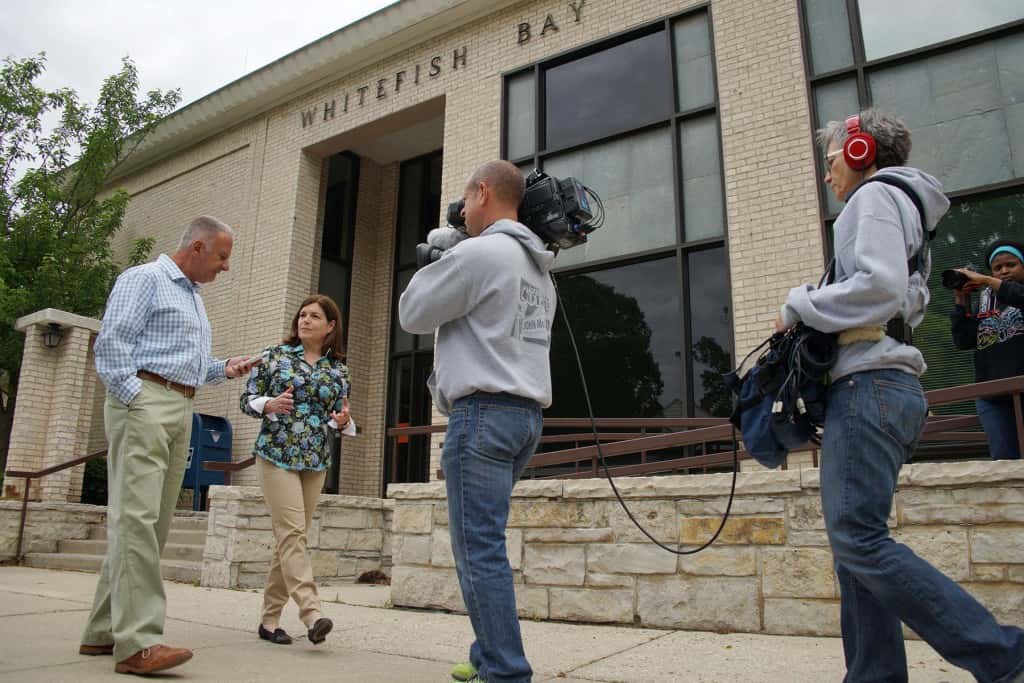
Steven Walters, a senior producer with the nonprofit public affairs channel WisconsinEye, interviewed Milwaukee County Executive Chris Abele On July 11, 2017.
The interview was recorded by WisconsinEye in the Office of the Milwaukee County Executive, and the Milwaukee Independent was invited to collaborate on the reporting.
The WisconsinEye Network broadcasts digitally from Madison by both both television and the Internet. Its mission is to provide the public with unfettered access to the actions of the Wisconsin State government, and a full range of information that influence the public policy debate and decision-making process. It is known for its unedited format, that presents a balanced point of view without commentary or analysis, providing public officials a direct and unfiltered channel of communications to their audience.
The unedited video session covers a range of topics from the Milwaukee County budget issues to transit sustainability and expansion plans, and this feature includes a behind-the-scenes look at the production on location.
Steven Walters: You’re a big fan and have been a key part of the film festival, how big can it get?
Chris Abele: When we founded it, the goal wasn’t just to have a film festival. The goal was eventually to have the best film festival in the country. We started in the year of the recession, the worst year ever to start a new nonprofit. We were sued for three years, a whole complicated mess, but we thrived. In our fourth year we were bigger than the Chicago Film Festival. Our sixth year we were top ten the country, and as of last year in the top five. We have Oscar winner John Ridley on our board. We’ve done an enormous amount to support the local film industry, always with a commitment to building it. And we just announced that we’re going to be able to control the Oriental Theater so everything people love about that theater is going to get better.
Steven Walters: That $42 million projected deficit [in the Milwaukee County budget], does that threaten bus service?
Chris Abele: Yes, it does. Also what threatens bus service is the fact that now it’s been eight years since we had an increase in funding for transit. So Milwaukee County gets less now than it did in 2009 for the bus system. In the ensuing eight years, things haven’t gotten cheaper. So by the way we’ve maintained routes, and kept fares low, is by pulling in a more local tax levy to fill the gap. We’ve put in millions more now locally than we used to. It’s frustrating, knowing that we’ve had a fair amount of success with economic development, when we’re sending more funds to the State. Transit lines and access to getting to jobs is about as close a line to economic development that you can think of, so it would be nice to see a little bit of an increase.
Steven Walters: Should the State budget regarding transportation, whenever it passes, include funding for the I-94 East-West project?
Chris Abele: When the Department of Transportation (DOT) talks about major projects, it’s a billion dollars plus for a relatively short section of East-West I-94 going out of downtown Milwaukee. To put it in perspective, for about $40 million you could restore transit funding for the County and the whole State. So a billion dollars vs. $40 million. The transit system right now has 150,000 rides per day, and that’s 40,000 people who are using it to get to work. It’s not a luxury, it’s a necessity.

